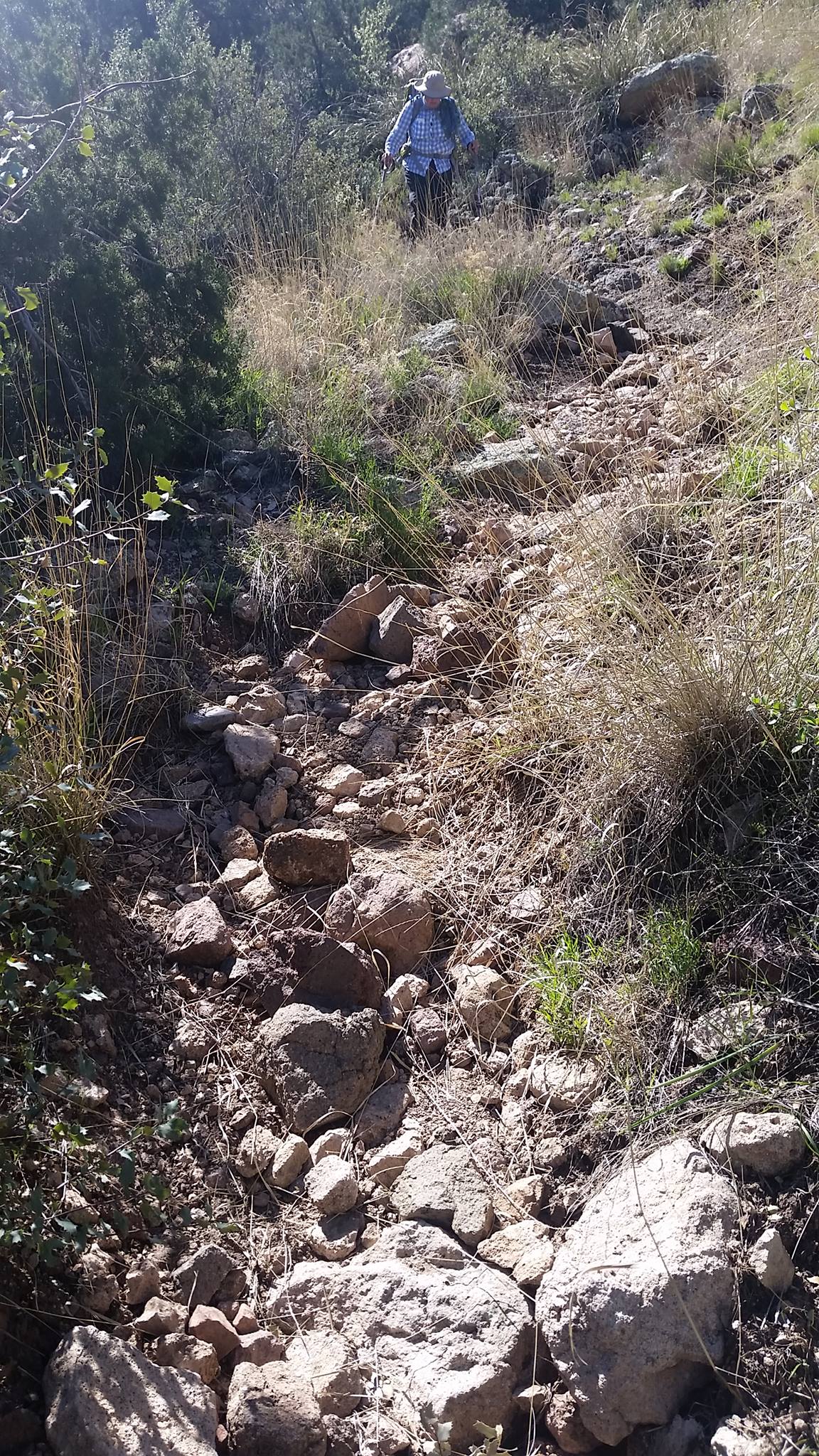I put my trekking poles out in front of me to provide support as I lowered my foot onto a steep “trail” of loose rock. My knee crackled as it took on the weight of me and my pack. Scar tissue from six years of playing rugby was arguing with my decision to go backpacking on a very difficult section of the Arizona Trail. I looked up and saw more trail, more rock, more pain, stretching out all the way down the mountain as far as I could see. It would probably take me at least one hour of slow, difficult, deliberate steps to make it all the way down to the creek bottom. After which, we had six more miles to hike. As I took a deep breath the phrase, “The only way out is through” flashed into my mind. I smiled. Who knew that grad school would have such practical implications in the wilderness.
The first time I heard that phrase was in reference to facing interpersonal conflict in organizational development consulting. And it’s true. When you have conflict in the workplace, when two people are in conflict with one another, the only way out is through. You can not come to resolution through avoiding the conflict, or talking your way around it, or burying it in paperwork and legalese. As a conflict mediator, you look for the moment when client tenses up or when they change the subject and then you take slow, difficult, deliberate steps into the heart of the conflict. You use your tools and your training and you agree to be kind to yourself and one another as you search for a way through.

My mother-in-law Cindi descending that difficult mountainside
I shared the phrase with my mother-in-law on the trail. She was the one who had invited me on this backpacking trip. We reflected on how, even though we shared the experience of going down that treacherous trail together, we each had to overcome it alone. Descending that rocky, loose section required complete concentration. We could not distract or entertain one another. We could only continue to serve as evidence for each other that what felt impossible was possible. I hope to remember this lesson in my day to day life. When someone is enduring a difficult ordeal, you often can not lift the burden directly. However, if you have been through the same situation, you can share your story, share the proof that someone made it down the mountain.

Over the course of two long days we backpacked 18 miles of the Arizona Trail through the Superstition Wilderness. It was a great trip and I am amazed with and grateful for my mother-in-law and the opportunity to do it with her.
